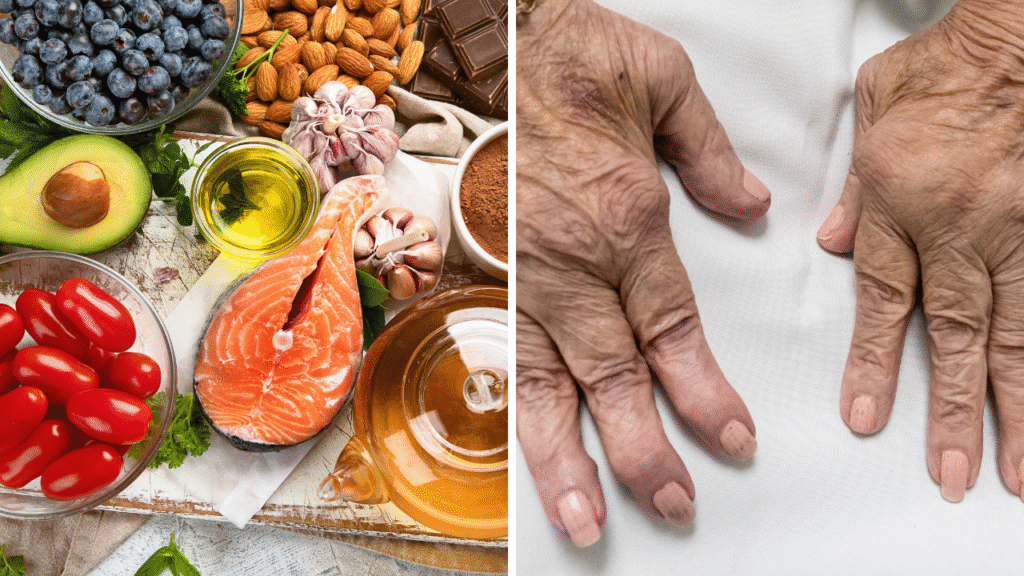
These vitamins are a class of water-soluble vitamins that all play essential roles in cellular metabolism and good health. Its sources are yeast, the beginnings of seeds, eggs, liver, meat, and vegetables.
Components
• B1 (thiamine). Its sources are pork, sunflower seeds, and wheat germ are among the most nutritious foods.
• Vitamin B2. Riboflavin-rich foods include organ meats, beef, and mushrooms.
• B3 (niacin). It is involved in cellular signaling, metabolism, and the production and repair of DNA. Chicken, tuna, and lentils are examples of food sources.
• B5 (pantothenic acid). Pantothenic acid, like other vitamins, helps your body obtain energy from food and is involved in hormone and cholesterol production. Good sources include liver, fish, yogurt, and avocado.
B6 (pyridoxine). This vitamin breaks down amino acids, makes red blood cells, and makes neurotransmitters.
• B7 (biotin). Foods such as yeast, eggs, salmon, cheese, and liver are sources of this vitamin.
• B9 (folate). Abundant in foods such as leafy greens, liver, beans, and folic acid supplements.
• B12 (cobalamin). It is the most commonly known vitamin, and it is essential for neurological function, DNA production, and red blood cell development. Sources are fortified cereal, beef, tuna, sardines, eggs, fortified yeast, milk, and salmon.
Benefits Of Vitamin B
- Immune system booster – Vitamin B1 is known as an anti-stress vitamin because it works to protect the immune system.
- May reduce inflammation.
- Stimulate red blood cell growth – These vitamins are for cell production and development. These cells are essential for bodily function because they transport oxygen to tissues throughout the body.
- Reduce the adverse effects of stress – B vitamins aid in the production of norepinephrine, a hormone that aids stress management.
- It boosts our energy naturally- We all require these vitamins to convert the food we eat into energy that our bodies can use.
- It promotes healthy memory and brain function.
- It promotes good skin and hair health- These vitamins are necessary for maintaining skin health and preventing hair thinning and loss.
- May reduce stroke risk – Research has linked these vitamins to a lower risk of stroke.
- May help prevent migraines – A recent study looked at vitamin B-2 on migraines and found it was well-tolerated and effective at reducing migraine frequency in adults.
- Improve cell health – Vitamin B1 is essential for cell growth, development, and function, and vitamin B2 aids in the fight against free radicals, which are particles in the body that cause cell damage.
Adverse Effects
- High blood sugar levels. Taking enormous amounts of nicotinic acid, a synthetic form of vitamin B3 raises blood sugar. In addition, it can interfere with diabetes medications. Therefore, high nicotinic acid doses should not be utilized by people with diabetes or high blood sugar (measuring 1,000 mg or more).
- Nicotinic acid excess. Nicotinic acid overdose can also result in low blood pressure, fatigue, headaches, rashes, and liver damage.
- Nicotinamide excess. High doses of nicotinamide, another form of vitamin B3, can result in diarrhea and bleeding. Amounts greater than 3,000 mg may result in vomiting and liver damage.
- Excessive folic acid taking more than 1,000 mcg per day can mask anemia caused by a lack of vitamin B12.
- A high-dose B-complex supplement can also cause the urine to turn bright yellow. However, this is a temporary and innocuous effect. The color will return to normal once the kidneys have eliminated the excess vitamins.
Recommendations
According to a trusted source, the recommended daily intake for women is:
- B1: 1.1 mg
- B2: 1.1 mg
- B3: 14 mg NE
- B5: 5 mg
- B6: 1.3 mg
- Biotin: 30 mcg
- Folic acid: 400 mcg
- B12: 2.4 mcg
For men’s daily intake:
- B1: 1.2 mg
- B2: 1.3 mg
- B3: 16 mg
- B5: 5 mg
- B6: 1.3 mg
- Biotin: 30 mcg
- Folic acid: 400 mcg
- B12: 2.4 mcg
Some older people and women who are pregnant may need more B vitamins. Your doctor can tell you how much to take based on your needs.
Deficiency Symptoms
- Fatigue
- Weakness
- Confusion
- Memory loss
- Behavioral changes
- Mental health problems
- Shortness of breath
- Decreases red blood cells
- Pale skin
- Indigestion
- Heart palpitation
Where to Buy
You can find it at grocery stores, health food stores, and online.
Disclaimer of Medicine
This information is not meant to provide medical advice or replace a personal physician’s advice or treatment. All readers of this information, especially those taking prescription or over-the-counter medications, should check with their doctors before initiating any nutrition, supplement, or lifestyle program. In addition, the statements and goods on this website have not been evaluated by the Food and Drug Administration.




